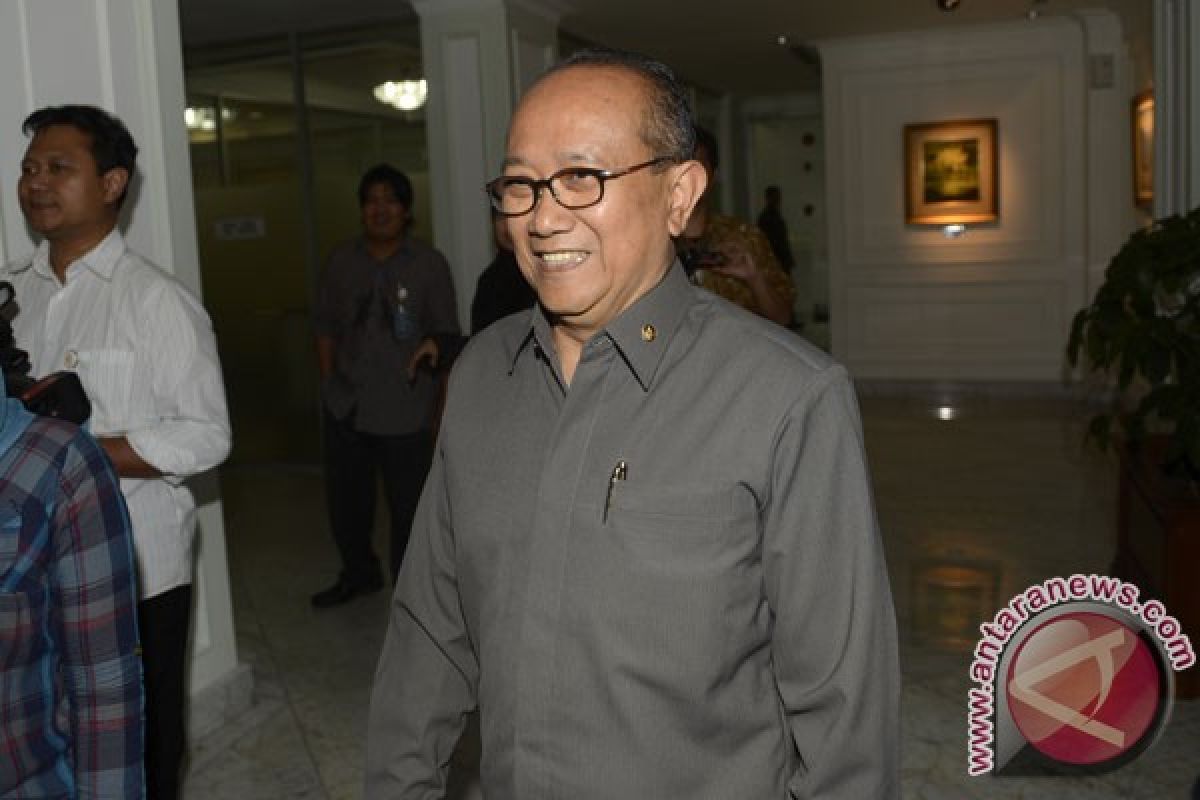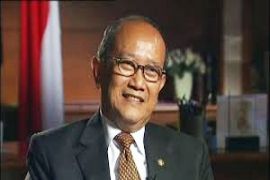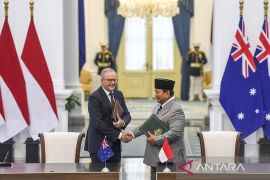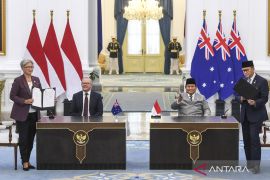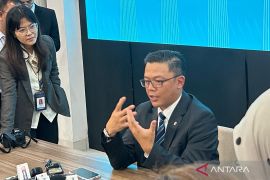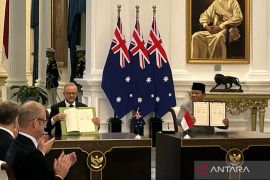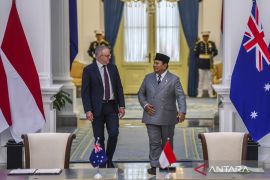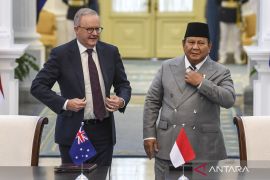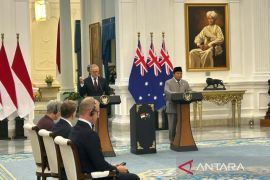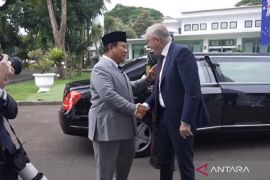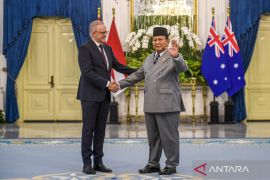Ambassador Kesoema and Australian Foreign Affairs Minister Julie Bishop spoke over the phone upon his arrival, and they went a step further when they met in person at the parliament house in Canberra on May 28, 2014, according to Australian media.
Australian news agency AAP reported that the Indonesian ambassador met Bishop for the first time since he was recalled. The talks were reportedly constructive and considered as a significant step towards strengthening relations between the two countries.
In November 2013, the Indonesian government decided to recall its ambassador to Australia as a strong protest over the illegal wiretapping conducted by Australian surveillance agencies that had targeted President Susilo Bambang Yudhoyono, the First Lady, and his inner circle.
Documents released by whistleblower Edward Snowden reveal that in 2009, Australias Defence Signals Directorate wiretapped the personal mobile numbers of both Yudhoyono and his wife, Kristiani Herawati, as well as eight others in the Presidents inner circle, including Vice President Boediono.
Following reports that Australias Jakarta embassy was used as part of a US-led spying network in Asia, Indonesias Foreign Affairs Minister Marty Natalegawa stated that if such facilities existed, they not only seriously violated the nations security but also the diplomatic norms and ethics.
The Foreign Ministry had summoned Australias ambassador to Indonesia for clarification about the issue related to November 1.
The incident also led Indonesia to suspend normal cooperation with Australia following the latters asylum boat policy. The Indonesian government also demanded an apology and sought the signing of a code of conduct (COC) before they resumed joint efforts on common issues, such as people smuggling, defense, and intelligence sharing.
Yudhoyono hoped that the agreement will be inked by August, which will be the final confirmation of resumption of normal diplomatic ties between the two neighbors.
Bishop had already sent the draft of the COC, which she described as a "joint understanding", to Indonesian Foreign Minister Marty Natalegawa in December 2013, but it has not yet been signed.
The ambassadors return is expected to help galvanize talks on the proposed COC being negotiated by Australia and Indonesia and heal the diplomatic rift caused by the spying revelations, AAP noted.
Indonesia has demanded that Australia sign a COC.
Bishop has met her counterpart, Marty Natalegawa on nine occasions since the crisis began to try to broker an agreement, most recently in Mexico, in April. The two ministers are scheduled to meet again in a 2+2 dialog between Australia and Indonesias foreign and defense ministers.
Minister Bishop was quoted as saying by the Australian media that the new COC being negotiated between Australia and Indonesia will include a clause dealing with future spying activities.
"I made it quite clear that Australia will not use its resources, our intelligence resources, to the detriment of our friends and neighbors and that includes Indonesia," she emphasized.
The Australian minister also remarked that although the relationship has stalled in some areas, it remains healthy in others.
"Yes, there has been a suspension of cooperation, particularly in relation to people smuggling ... [and] defense. But, otherwise, there are about 60 areas of cooperation between Australia and Indonesia, covering about 22 Australian Government departments and agencies and authorities and that is continuing," the minister added as reported by the Australian media.
With regard to Indonesia, Minister Natalegawa recently stated that the relationship between Indonesia and Australia was currently in the stage of exchanging the COC drafts, which will be used to govern the diplomatic relations between the two countries in the future.
"I keep in touch with the State Secretary Bishop to ensure that progress is being made, and we are in the stage of exchanging the COC," he added.
Natalegawa added that it is important for the officials of Indonesia and Australia to stay in touch and establish communication, even more so during such difficult times in their diplomatic relationship.
"We (Indonesia) want to make sure that there is no miscommunication and misunderstanding, and that the issue does not escalate, and during this difficult situation, it is even more important to communicate and establish the hot lines of communication," Natalegawa stressed.
Last month, Australian Prime Minister Tony Abbott telephoned the Indonesian president to express his regret for being unable to fulfill Yudhoyonos invitation to attend the Asia-Pacific Regional Conference on Open Government Partnership in Bali.
"President Yudhoyono said he understood the reason for Prime Minister Abbotts absence in the Bali meeting due to budget deliberation in parliament," reported Yudhoyonos spokesman Faizasyah.
Faizasyah said that during the conversation, the two leaders also warmly welcomed the progress achieved by the two countries foreign ministers with regard to discussions on the COC.
The two leaders expressed hope that the COC can be inked soon, so that the bilateral relations between the two neighboring countries will recover and enter a new phase, he emphasized.
"President Yudhoyono expressed hope that the COC will be signed in August 2014 at the latest," Faizasyah said.
Prime Minister Abbott is expected to visit Indonesia and meet President Yudhoyono in June, this year.
(f001/INE/B003)
Editor: Aditia Maruli Radja
Copyright © ANTARA 2014
